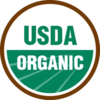
USDA ORGANIC (NATIONAL ORGANIC PROGRAM)
🇺🇸 United States
Unclaimed Profile
This Company Profile has not yet been claimed. To claim the profile, please click here.
Some Numbers About USDA ORGANIC (NATIONAL ORGANIC PROGRAM)
Latest News from Company (1)
About (USDA ORGANIC (NATIONAL ORGANIC PROGRAM))
The USDA Organic program, also known as the National Organic Program (NOP), is a regulatory framework established by the United States Department of Agriculture (USDA) to ensure the integrity and standardization of organic agricultural products in the United States.
The USDA Organic program was implemented in 2002 under the Organic Foods Production Act of 1990. Its primary purpose is to regulate and certify organic agricultural products, including crops, livestock, and processed foods, based on defined organic standards. The program aims to provide consumers with assurance that products labeled as "organic" meet specific requirements and have been produced using approved organic practices.
To qualify for USDA Organic certification, agricultural producers must adhere to stringent guidelines and standards throughout their farming practices. These standards include requirements related to soil fertility and management, pest and weed control, livestock feed and welfare, and the prohibition of synthetic fertilizers, pesticides, antibiotics, and growth hormones. Producers must also follow strict record-keeping and labeling requirements to maintain transparency and traceability in the organic supply chain.
The USDA Organic program includes a certification process conducted by accredited certifying agents. These agents inspect and verify that farmers, processors, and handlers comply with the USDA organic regulations. Once certified, products can bear the USDA Organic seal, indicating that they meet the organic standards and have undergone the necessary oversight and verification processes.
The USDA Organic program has played a crucial role in promoting organic agriculture and providing consumers with clear labeling and certification standards for organic products. It has contributed to the growth of the organic industry and has provided a framework for consumers to make informed choices about the food they purchase. By supporting organic farming practices, the USDA Organic program aims to promote environmental sustainability, biodiversity, and the well-being of farmers, animals, and consumers alike.